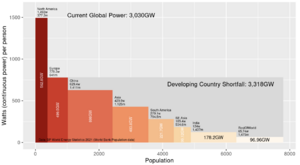|
An encyclopedia project—and more!
Welcome to Citizendium, a wiki for providing free knowledge where authors use their real, verified names and credentials. We welcome anyone who wants to share their knowledge by writing articles on virtually any subject, and by improving articles written by others. Please read through our easy registration procedures, then join us as an Author and perhaps also as a recognised expert Editor.
- We have 16,484 articles at different stages of development, of which 0 are expert-approved.
- Our community is collegial and congenial; everyone writes under his or her verified real name.
- We welcome anyone who has knowledge, broad or narrow, about any subject. Sign up—we need Authors, and from amongst them, specialist Editors.
- We prefer new material but allow work from other sites to be imported and improved under certain conditions.
- For a brief guide on what Citizendium is and is not, see Myths and Facts; for more details, see the frequently-asked questions page.
- Students in higher education write here as part of their courses under our Eduzendium initiative.
- We have a Charter to provide a framework for governance.
- For more details on participation, see Why Citizendium? and Why I Contribute.
- To learn more about the project, see our article on ourselves, our Help System, our financial report and our Statistics page.
- Follow us on Twitter (general news; new pages), Facebook or Google+.
Join us
| Our help system
|
| Questions and answers to help you find the information you need
|
From the HOME page you can get started, get technical help, see our policies, and explore our organization in detail.
|
Some of our finest
Approved Articles (0)
Developed Articles (1,129)
(16,484 total articles)
|
Words are only postage stamps delivering the object for you to unwrap.
— George Bernard Shaw
—add a quotation about knowledge or writing
•Did You Know?
•Citizendium Blog - Latest entry: 01-Jan-2013
|
Monthly Donation Day | Monthly Donor Honor Roll
CZ:Monthly Honor Roll of Users Editing the Wiki
Featured Article about
After decades of failure to slow the rising global consumption of coal, oil and gas,[1] many countries have proceeded as of 2024 to reconsider nuclear power in order to lower the demand for fossil fuels.[2] Wind and solar power alone, without large-scale storage for these intermittent sources, are unlikely to meet the world's needs for reliable energy.[3][4][5] See Figures 1 and 2 on the magnitude of the world energy challenge.
Nuclear power plants that use nuclear reactors to create electricity could provide the abundant, zero-carbon, dispatchable[6] energy needed for a low-carbon future, but not by simply building more of what we already have. New innovative designs for nuclear reactors are needed to avoid the problems of the past.
 (CC) Image: Geoff Russell Fig.1 Electricity consumption may soon double, mostly from coal-fired power plants in the developing world. [7] Issues Confronting the Nuclear Industry
New reactor designers have sought to address issues that have prevented the acceptance of nuclear power, including safety, waste management, weapons proliferation, and cost. This article will summarize the questions that have been raised and the criteria that have been established for evaluating these designs. Answers to these questions will be provided by the designers of these reactors in the articles on their designs. Further debate will be provided in the Discussion and the Debate Guide pages of those articles.
- ↑ Global Energy Growth by Our World In Data
- ↑ Countries, organizations, and public figures that have reconsidered their stance on nuclear power are listed on the External Links tab of this article.
- ↑ Pumped storage is currently the most economical way to store electricity, but it requires a large reservoir on a nearby hill or in an abandoned mine. Li-ion battery systems at $500 per KWh are not practical for utility-scale storage. See Energy Storage for a summary of other alternatives.
- ↑ Utilities that include wind and solar power in their grid must have non-intermittent generating capacity (typically fossil fuels) to handle maximum demand for several days. They can save on fuel, but the cost of the plant is the same with or without intermittent sources.
- ↑ Mark Jacobson believes that long-distance transmission lines can provide an alternative to costly storage. See the bibliography for more on this proposal and the critique by Christopher Clack.
- ↑ "Load following" is the term used by utilities, and is important when there is a lot of wind and solar on the grid. Some reactors are not able to do this.
- ↑ Fig.1.3 in Devanney "Why Nuclear Power has been a Flop"
|
|
